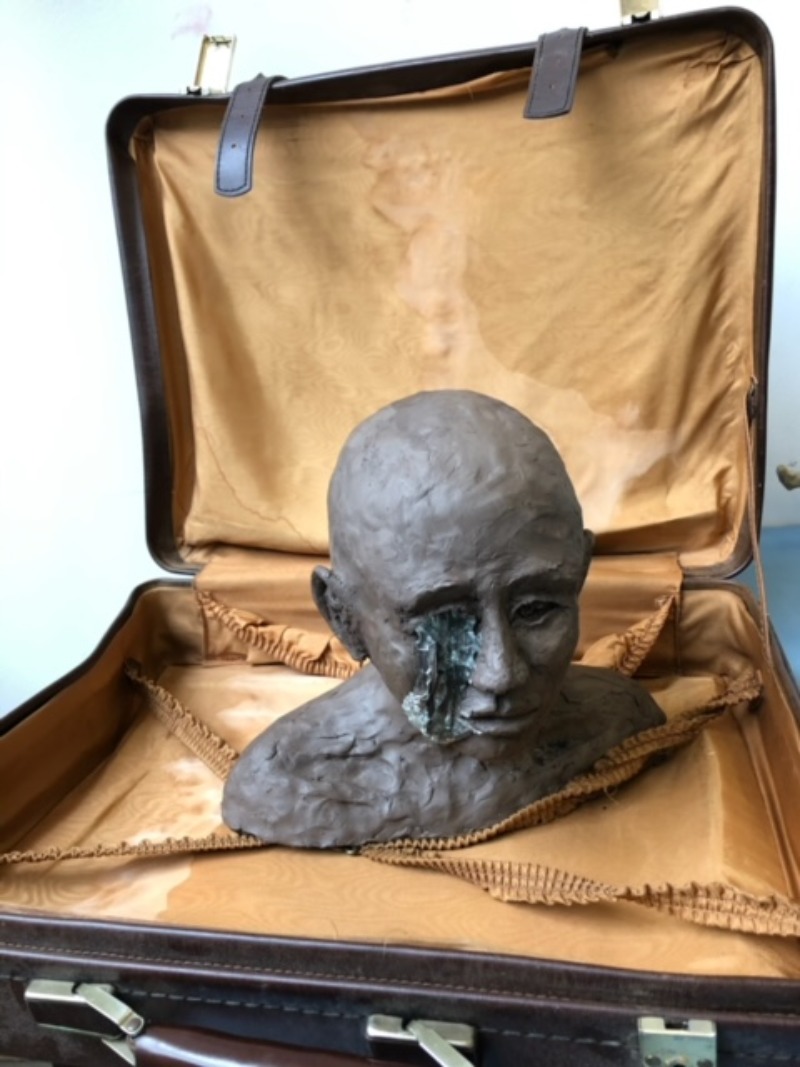Opening viewing Saturday 1st July, 18h until 20h
Salle des fêtes, Lamalou-les-Bains
Exhibition from Sunday 2nd July to Sunday 9th July, 15h until 18h
In July 2023 there will be an exhibition of sculptures by Eric Meersman
Click on the name below to find out more.

QUI INVENTA L'AUTRE
Born 1950 as a visual artist but lost for many years as an econometrician, computer scientist. After some ten years as a volunteer active in cooperation work in Africa, finally, a few years ago, he came home to the academy of sculpture in Ghent.
Sculptures are universes, are stories and, like novels, inevitably partly autobiographical. But whereas literature draws you into the story, a sculpture leaves much more room for interpretation. The context determines the point of view, the perspective and therefore the stories. The meaning changes depending on who is looking at them, how the sculptures are framed, one’s mood.
Are my sculptures installations? Strictly speaking, that is correct. I often start with a fairly traditional sculpture that, once finished, becomes the starting point to construct the story, give it meaning. This is done by adding elements: physical visual elements, possibly in various materials; sound can also be part of it. The ensemble, together with its specific location becomes the sculpture, my story.
Once the story is written, it is up to the viewer/reader to give it meaning from his point of view, his perspective, his context. As with a book, a film, it is necessary to create the space, to take time to get into the story.
I could tell a detailed story about each of my sculptures: how they were created, what references are at play, what locations, events. Occasionally I do want to do that for a sculpture but I think the ambiguity helps to create space for the viewer to form his own meaning, his own story, his own atmosphere.
The exhibition: QUI INVENTA L'AUTRE.
"We", "the other", what are we talking about? Who is that other person? Is that other fascinating, enriching or, on the contrary, uninteresting, a nuisance, a problem? Where does "we" end and "the other" begin? What makes someone "the other"? Is it a different culture, country, language, skin colour, gender or sexual preference? Based on any of those characteristics, does that other person become a group that looks at itself as "us"?
Can our children, parents, be "the other"? Can my neighbour be "the other"? Can he be "us" if he speaks the same language, his parents already lived here too, or can it be that his parents already lived here but he is a different colour? Is "the other" rich, poor, smart, stupid?
Now that we have figured out "the other", how do we behave towards him? Are we interested, welcoming? Should we be scared of the “other”, does he want things that are ours, is there enough for “us”? Or, on the contrary, does he bring things that we like, that are fascinating and enriching?
Should we isolate the others so that we remain "us"? Should we isolate them so that they cannot affect our culture, or embrace them so that they could enrich our culture?
And who exactly is "us" and who is "the other" when "the other" looks at "us"?
Are there any general principles? Should the visitor behave according to the rules, the expectations of the host? Should the host understand the visitor's habits? Is the respect mutual? Do we find “the other” in the hospitable country we are holidaying in?
In extremis... Is “the other” on the other side of the front line, that other who should be shot at, condemned like “us” to fight and die for the homeland?
